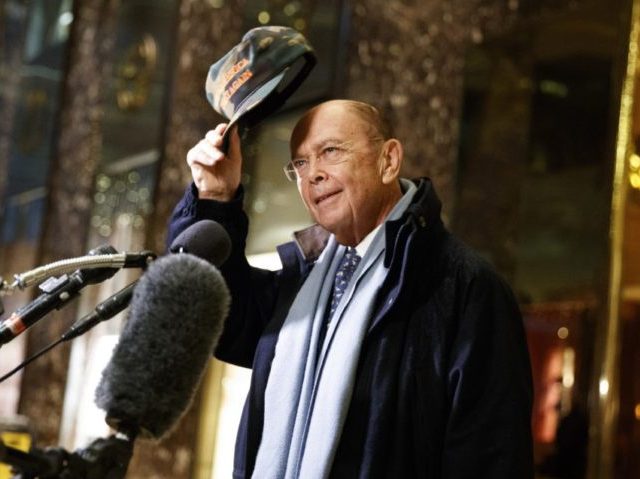Score another win for Commerce Secretary Wilbur Ross.
U.S. tariffs on imported steel and aluminum products have only had a “slight to moderate” impact on consumer prices, the Federal Reserve said in a report Wednesday.
The Fed’s Beige Book report on the economy, which collects anecdotal reports of business contact of the 12 regional Fed banks, said that the economy has continued to expand and labor markets tightened in June and early July. Concern over tariffs, however, has grown.
“Manufacturers in all districts expressed concern about tariffs and in many districts reported higher prices and supply disruptions that they attributed to the new trade policies,” the Beige Book reported. “All districts reported that labor markets were tight and many said that the inability to find workers constrained growth.”
When the metals tariffs were first introduced, Ross argued that they would have a minimal impact on consumers. The latest Beige Book bears that out.
The widespread concern over tariffs and the tighteness of the labor market paints a picture of an economy that is working to benefit wage-earners at the cost of corporate profits. As Breitbart reported in May:
Although many big corporations reacted to the announcement of tariffs with warnings that consumers would be forced to pay higher prices, the evidence so far is that corporations have been forced to absorb the costs of tariffs rather than passing them on. Instead of squeezing the pocketbooks of American households, the tariffs are putting pressure on record-high corporate profits.
Of course, U.S. businesses have benefited from the Trump administration’s tax cuts, giving them more room to deal with margin compression due to higher labor costs or increased materials costs from tariffs. Indeed, corporate profits are expected to grow 20 percent over the coming year.
Pricing pressures are expected to intensify further in some districts, the Fed said in the report. But in others, price pressures are expected to grow at a “modest” pace.
Most of the Fed’s districts said businesses reported difficult hiring qualified workers. A few reported that they were raising wages to attract workers. Despite this tightness in the labor market, businesses describe the wage gains as modest to moderate.
According to the latest report, average hourly earnings are up just 2.7 per cent compared with a year ago.

COMMENTS
Please let us know if you're having issues with commenting.